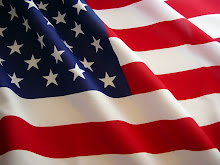Monday, December 7, 2009
Muslim Women Versus Muslim Men in the Media
ABC Primetime recently aired a segment in which one actor posed as a Muslim woman dressed in traditional hijab and another posed as a bakery clerk. The premise of the experiment was to observe the reactions of bakery customers when the clerk refused service to the Muslim woman. The reactions of the 41 customers varied. Twenty-two of the customers, over half, said or did nothing about the discrimination. Six sided with the bakery employee, some giving him an emphatic “thumbs up” and another claiming he would also refuse service to Muslims. Most revealing, though, are the reactions of the thirteen customers that stood up for the Muslim woman. These customers expressed extreme disgust at the clerk’s decision, calling it “offensive,” “disgusting,” and “sick,” and asserting that she is an American. Despite these courageous people, I would like to argue that the news clip propels stereotypes about Islam and further adds to the racially biased media rhetoric surrounding the War on Terror.
Using Europe as an example, Sherene Razack’s essay argues that legislation “culturalizes” domestic violence against Muslim women by claiming this violence and oppression is an inherent part of Muslim culture. The U.S. government has used this explanation to legitimize and gain support for the War on Terror. The racist construction of the “imperiled Muslim woman” has become a rallying point that the media perpetuates in its programming, such as the ABC Primetime clip. This imperiled Muslim woman is characterized by her veil, which is seen as a symbol of her oppression by the inherently tyrannical Muslim culture. Razack argues that the Muslim man is constructed in opposition to the imperiled Muslim woman. He is seen as dangerous and violent, a representation of terrorism, and something that needs to be destroyed. The War on Terror flourishes on this stereotype, rallying support behind the claim that Muslim women need saving from their male oppressors.
Although the ABC Primetime segment does not directly employ the rhetoric of the imperiled Muslim woman, the reactions of the bakery customers certainly indicate that this type of ideology is present in the minds of Americans. For example, a young customer defending the Muslim actor states that her culture requires her to dress in a hijab. This reference to the intersection between culture and a hijab implies that the Muslim woman should not be discriminated against for an item of clothing she had no choice in wearing. The customer seems to be saying that it is obviously not the Muslim woman’s fault, and thus we must accept her despite the oppressive nature of her culture.
On the other hand, what if the Muslim character in the segment was played by a man rather than a woman? What if he looked like the dangerous Muslim man that is typified as an oppressor of Muslim women? The reaction of the customers to the bakery clerk’s refusal to serve the Muslim man would most likely be very different than their reaction towards the Muslim woman. I would expect many more to endorse the behavior of the bakery clerk on the grounds that he is being patriotic and American. Their basis for this approval is drawn from the same ideology that states Muslim women need saving. The Muslim man is classified as inherently dangerous due to his culture, and thus “terrorist” becomes conflated with “Muslim.” Essentially, the media demonizes Muslim men as enemies of the state, while women are upheld as repressed victims of their culture.
Subscribe to:
Post Comments (Atom)

No comments:
Post a Comment